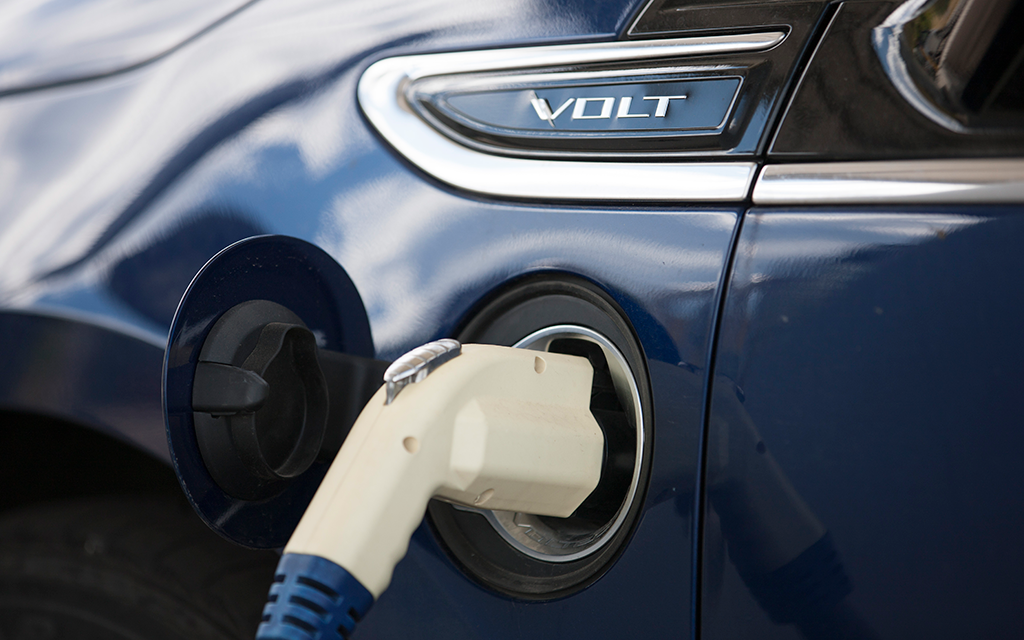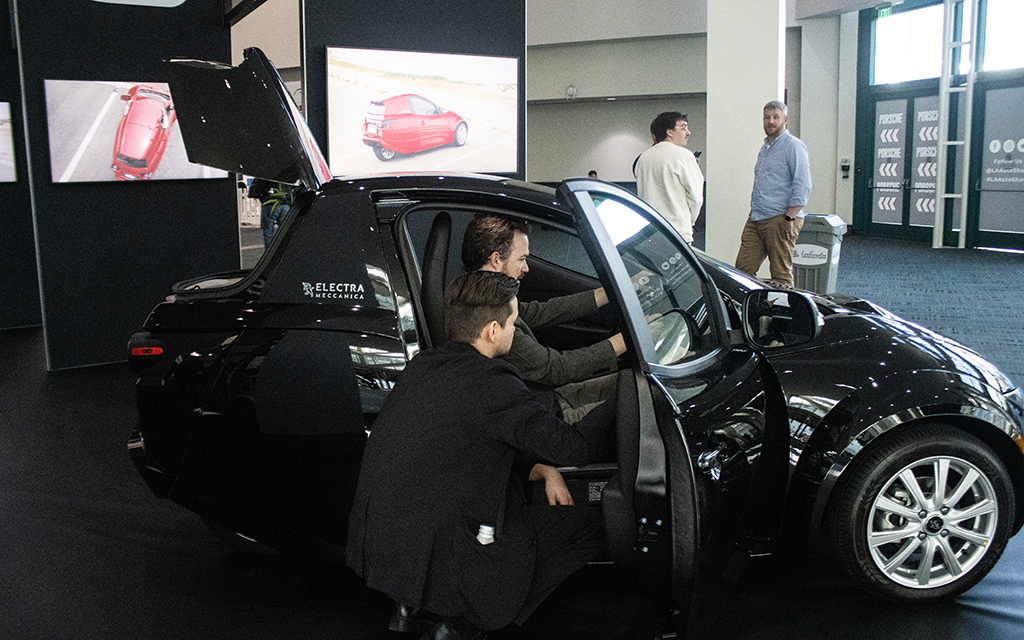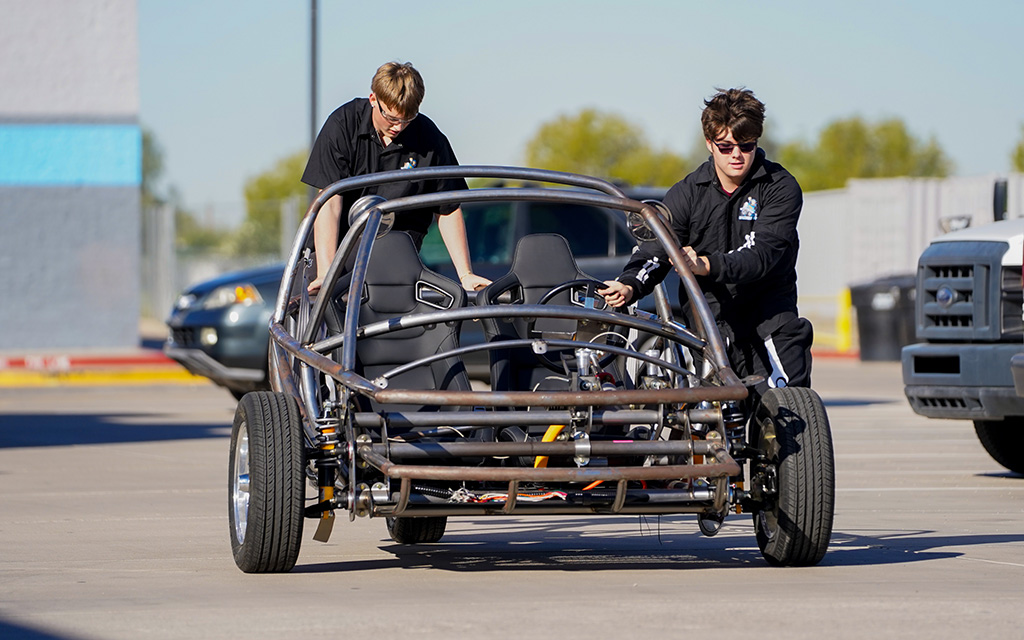
Arizona had the seventh-highest number of electric vehicle registrations in the U.S. in 2021, according to the Department of Energy. But the state did not fare as well – 26th of 33 states – in a new scorecard that ranks states on their policies to encourage adoption of EVs. (Photo by Matthew Staver/U.S. Department of Energy)
WASHINGTON – Arizona fared poorly across the board for policies aimed at encouraging the adoption of electric vehicles, according to a national ranking of state policies released Wednesday.
Arizona was 26th of the 33 states included in the 2023 scorecard from the American Council for an Energy-Efficient Economy, whose authors said states are making “incremental progress, not transformational progress.”
Arizona slipped from 25th in the last scorecard, in 2021. The decline did not come as a surprise to Jim Stack, president of the Phoenix Electric Auto Association.
“They’re right,” Stack said of the report’s authors. “Unfortunately, out of all our government leaders, we don’t seem to have a single one that seems to be a big person helping or encouraging (EVs).
“I’m disappointed in our state and in our policies. They can do it right like other states do,” Stack said, pointing to California and Nevada, which finished first and 13th in the report, as examples of places where policies have encouraged EV uptake.
Only nine states scored more than 50% in their overall score on the 2023 State Transportation Electrification Scorecard. The 300-page report ranked states in five categories, from charging infrastructure to incentives to planning and long-term goals.
Only 33 states were included in the analysis, because “the remaining states achieved very few points, and there is little differentiation in policy progress” among them, according to the ACEEE.
“States will have to move far more aggressively to do their part to enable the electric vehicle transition that the climate crisis demands,” said Peter Huether, senior research associate at ACEEE, in a press release on the report.
Huether told reporters Wednesday that this year’s report gave extra points to states that adopted two California EV regulations: Advanced Clean Cars II, which will phase out the sale of gas-powered cars, and Advanced Clean Trucks, which encourages the development of electric trucks.
California led the report on four of the five categories used to rank the states, getting full marks from the ACEEE for “planning and goals” and “Grid optimization” categories. California’s final score was 88; Arizona finished with 23.5 points.
Jennifer Kalafut of the California Public Utilities Commission, on the press call for the release of the report, said her state was “focused on high-density apartment buildings and public fast-charging as a solution so residents can charge up their EVs in a short amount of time.”
Also on the call was Adam Ruder of the New York State Energy Research and Development Authority, who said his state, which finished second overall, was focused on advancing “electric transportation equity in ways that go beyond car ownership,” citing New York’s extensive public transport network.

The ElectraMeccanica Solo, a single-seat electric vehicle. ElectraMeccanica has a manufacturing facility in Mesa. (File photo by Emeril Gordon/Cronkite News)
Arizona Gov. Katie Hobbs’ office did not immediately respond to a request for comment Wednesday.
Stack said people are ahead of the politicians on electric vehicles, and their views are changing for the better, adding that the presence of EV manufacturers in the state, like Lucid Motors, helps.
“Lucid is right here, and that’s helping a lot of people wake up and say, ‘Hey, these things are for real and they’re creating jobs in the area,'” he said.
The move to electric transportation is a way to reduce carbon emissions from the sector, which makes up 28% of greenhouse gases in the U.S., according to the Environmental Protection Agency.
Despite the state’s dip in the rankings, Sandy Bahr of the Grand Canyon chapter of the Sierra Club said she is optimistic.
“We have a ways to go with electrification, but it is clear that we are beginning to move in the right direction with transitioning off fossil fuels in our transportation system,” Bahr said in an emailed statement.

